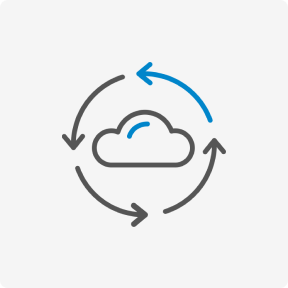Although emulators are legal almost everywhere, downloading programs to use on those emulators without paying for them may not be. Look up the regulations surrounding emulated programs in your country before downloading them. Emulators can bridge the gap between these devices, allowing programs to work on all sorts of hardware. The term „emulation“ comes from the verb „emulate,“ which means to imitate or reproduce. Therefore, computer emulation is when one system imitates or reproduces another system. However, since hardware is expensive to reproduce, most emulation is done via software.

Emulators are often used to run older software on modern hardware, while simulators are used for training and testing in various fields. Frequently, multiplayer video games require an internet game server that may or may not be accessible for installation on-premise. A server emulator is an unauthorized on-premise server that mimics the behavior of the authorized internet server, even though its core processes may vary. However, the differences between emulation vs. simulation are quite big when it comes to mobile automation.
Logic simulators
Processor timing and interrupt handling are principles that dictate how the emulator interfaces with the CPU to run appropriately.
Emulations are useful for monitoring the behavior of suspicious programs while using fewer resources than sandbox environments. Unfortunately, emulating an operating system is extremely cumbersome, and one of its major drawbacks is its scalability. While emulations utilize minimal resources, they are computationally complex, and can result in extremely slow runtimes.
Comparison: Real Device Cloud and Android Emulators
Most emulators just emulate a hardware architecture—if operating system firmware or software is required for the desired software, it must be provided as well (and may itself be emulated). Both the OS and the software will then be interpreted by the emulator, rather than being run by native hardware. While emulation could, if taken to the extreme, go down to the atomic level, basing its output on a simulation of the actual circuitry from a virtual power source, this would be a highly unusual solution. Emulators typically stop at a simulation of the documented hardware specifications and digital logic. Sufficient emulation of some hardware platforms requires extreme accuracy, down to the level of individual clock cycles, undocumented features, unpredictable analog elements, and implementation bugs.
In the Bayes linear approach, the emulator’s
probabilistic specification of outputs comprises (adjusted) means,
variances and covariances. Here’s all you need to know about the tool, how it works, where it’s used, and to what extent you can rely on it when you are testing your native Android or web apps. 72% of all mobile devices currently run on Android or modified versions of it; from your Motorolas and LGs to Pixels, Samsungs and so many others. The variety is great, ever-growing… and problematic for developers in a hurry to ship. Moving past the emulator definition, here are some examples of different emulators in the world of gaming.
Emulator Sentence Examples
An emulator is a computer program (or occasionally custom computer hardware) that’s designed to simulate another kind of device. Furthermore, for any set of input configurations, the emulator will
provide a joint probabilistic prediction of the corresponding set of
simulator outputs. For serious, pre-release cross browser testing (on UI and all functionalities), you will need a diverse collection of real Android devices. QA engineers use testing automation frameworks like Appium or Espresso, write test scripts, and execute them on as many different Android devices as necessary to meet the benchmarked compatibility standards for a given target market.
- Parallels will, in a sense, create a Windows computer inside of your MacBook — this will let you run any Windows app you need.
- Emulators have roots in software simulation techniques used in the early days of computing.
- Here’s what you should know about emulators, including why people use them, how they commonly work, and what kinds there are.
- These types of emulators are popular with computer historians and preservationists.
- Emulators like these are challenging to build since they necessitate the precise elimination of system dependencies on their host.
The emulation of gaming systems began in 1991, beginning with Sega Genesis. In 1995, emulation development blossomed into a “scene” in which ROMs were widely copied and circulated. Emulators let a computing environment behave like another to operate incompatible apps. PCMag.com is a leading authority on technology, delivering lab-based, independent reviews of the latest products and services. Our expert industry analysis and practical solutions help you make better buying decisions and get more from technology.
Low-code Composable Experiences Speed Up Implementations
These applications are collectively referred to as software emulators, since they emulate different computer systems. Many emulators are written using „pre-packaged“ CPU simulators, in order to concentrate on good and efficient emulation of a specific machine. This is made possible by assigning a variable to each register and flag of the simulated CPU. The logic of the simulated CPU can then more or less be directly translated into software algorithms, creating a software re-implementation that basically mirrors the original hardware implementation. Many printers, for example, are designed to emulate HP LaserJet printers because so much software is written for HP printers.
These terminals consisted of a display and keyboard, were primarily used to connect with other computers, like a minicomputer or mainframe. An emulator regenerates an original computer environment with the help of software and hardware. The process of creating an authentic emulator is complex and time consuming.
What are Android Emulators?
Keep reading for an emulation definition, simulation definition, and to understand the differences between them. The goal of TechTerms.com is to explain computer terminology in a way that is easy to understand. If you have feedback about this definition or would like to suggest a new technical term, please contact us.
This permits the guest system’s software, tools, peripheral devices, and other components to be executed on the host system. Many distinct kinds of emulators exist, each designed to simulate a certain environment or set of resources, like a specific piece of hardware, software, operating system, or central processing unit. In most situations, however, hardware architecture is imitated to create a host system-like https://www.globalcloudteam.com/ environment. Emulators translate the machine language of a foreign application into the machine language of the computer the emulator is running in. The operating system is in the machine language of the running hardware, although parts of it may also be emulated as well. For example, when Apple transitioned from Motorola CPUs to PowerPC, part of the PowerPC OS was actually Motorola code that was emulated.
Word Length
In hardware, emulation is the use of hardware to imitate the function of another hardware device for the purpose of connecting devices to one another or connecting to a mainframe computer. A virtual environment can also be referred to as a partition, guest, instance or container. Emulators are also helpful for producing homebrew demonstrations and new games for obsolete, defunct, or uncommon systems. emulator definition The emulator commonly receives the game’s code and data through a ROM file (a duplicate of the gaming cartridge contents) or an ISO image (a replica of optical media). These examples are programmatically compiled from various online sources to illustrate current usage of the word ‚emulator.‘ Any opinions expressed in the examples do not represent those of Merriam-Webster or its editors.





